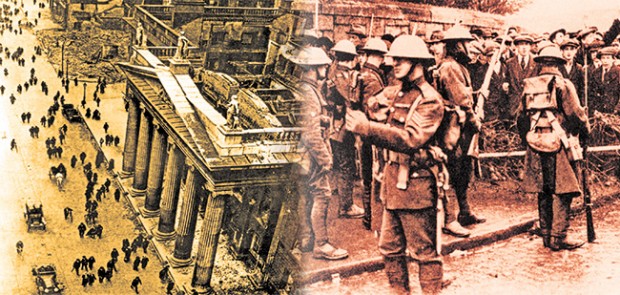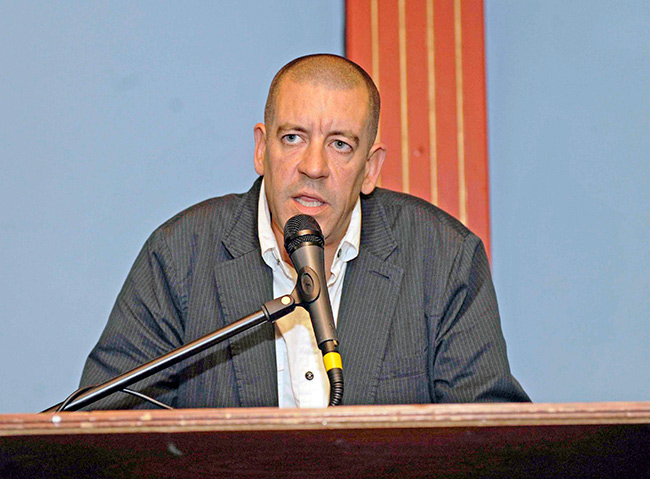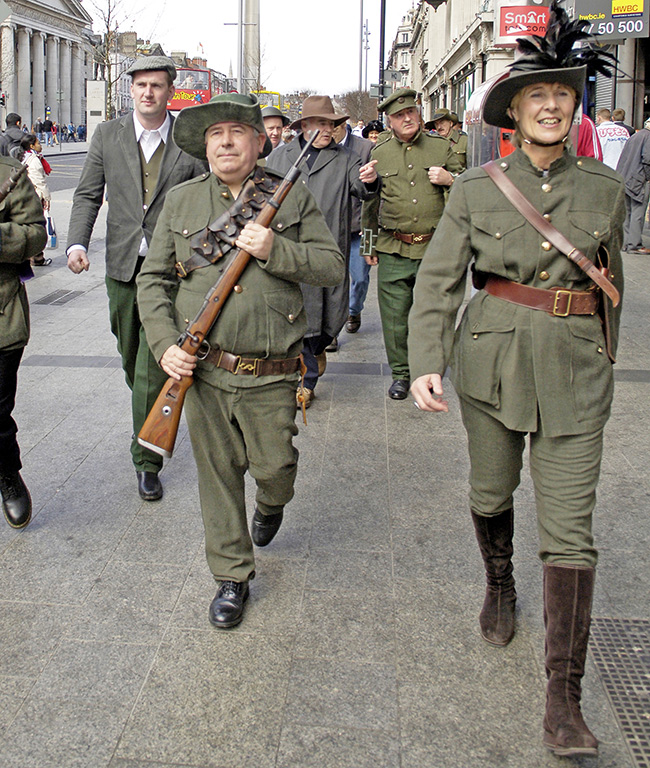1 February 2016 Edition
Why is the middle class so afraid of Easter Week?

• Parties claiming descent of the Irish patriots of 1916 are ambivalent about celebrating the centenary
I believe the roots of the unease of Fine Gael, Labour and Fianna Fáil lie in the fact that the state that the Establishment created failed to fulfil the expectations of the Irish people
Who fears to speak of Easter Week
That week of famed renown,
When the boys in green went out to fight
The forces of the Crown.
THE 100th anniversary of the Easter Rising is a time of great pride for the vast majority of Irish people, yet the official ‘celebrations’ are strangely muted.
There is a clear reluctance to praise the Rising and the Establishment media vie with each other to condemn and smear the honour and bravery of the men and women who challenged the British Empire at the zenith of its power.
While the Irish Times condemns the Rising as “immoral”, the rest of the media insist that we must equally remember those who died fighting for the Empire and against the freedom of Ireland.
They insist, in the words of historian Diarmuid Ferriter, that there is more than one definition of freedom, as if being subservient to Britain can also be defined as freedom.
But why is it that parties which claim descent from those who raised the banner of freedom in 1916 are so ambivalent about the celebration?

• Historian Diarmuid Ferriter
Fine Gael – which claims Easter Week combatant Michael Collins as its founding inspiration; Fianna Fáil – which includes among its founding personnel people like Constance Markiewicz and Seán Moylan, a key figure in the Tan War; and Labour, which blasphemously claims James Connolly as its founder.
I believe that the roots of their unease lie in the fact that the state that the Establishment created – a Free State wrapped up in red, white and blue, and now enfolded in the 12 EU stars – failed completely to fulfil the expectations of the Irish people.
In rising up against the Empire, Irish people believed that our own state would enable us to develop our economy, end poverty and emigration and take our place among the developed nations of the world.
The sad fact is that the first years of the Free State were wasted years: the cattle ranchers and the retail capitalists had no vision beyond their existing economic interests and were happy to administer their bit of Ireland in harmony with the interests of the Empire. It was Home Rule writ large.
The only achievement worthy of note in that era was the Shannon Scheme at Ardnacrusha and the establishment of the ESB.
Fianna Fáil came to power in 1932 essentially because the Free State was such a dismal failure. It set about a limited dismantling of the Treaty in the 26 Counties together with a programme of industrial development and social improvement.
But Fianna Fáil was always characterised by caution and a fear of alienating the powerful vested interests of the property owners in Irish society. In particular, while favouring state-led industrial development, it ran scared of taking on the control of Irish finance held by English banks. It never broke with sterling, and in the end of the day its capability for development was limited by that factor.
Fianna Fail’s industrialisation did strengthen the economy – and living standards of the people – but by the 1950s it had run out of steam. Unwilling to take the decisive step forward that would have necessitated more state development and state control of finance, it lost faith in its ability to develop an independent state.

• Labour Party TDs claim to follow in the footsteps of James Connolly
TK Whitaker, the senior civil servant who put forward the new Programmes for Economic Expansion, openly questioned whether the state could remain independent at all, whether in fact independence had been a mistake.
The new turn was one of reliance on foreign capital investment to develop the economy, and politically this was backed up by entry into the European Common Market: under the doctrine of More Brussels and Less Britain, the Irish state effectively abandoned the effort to build an independent capitalism, or an independent state.
Similar to the Marxist analysis of Czechoslovakia, Irish capitalism emerged too late on the world stage to be able to survive.
Middle-class capitalist independence has failed, which is why it is so difficult for this class (which doesn’t believe that the state should take control of the commanding heights of the economy) to celebrate an Easter Rising which challenged the old Empire order and opened up the prospect of a genuinely democratic and republican alternative to the primacy of private property.
Indeed, the owners of private property put the defence of their wealth and power in front of everything else.
Yes, we are back to Connolly: The Irish working class are the only incorruptible inheritors of the fight for Irish freedom.
And the next stage of our struggle must be to bring the organisations of the working class – trade unions, community associations, single-issue agitations – back into involvement in and control of the national fight for freedom which has still to be brought to fruition.




